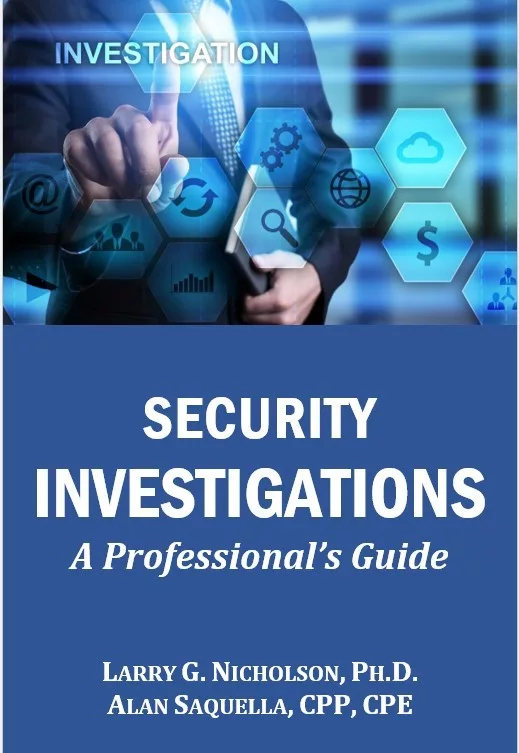Professional Organizations for Instructors: Out in Front
Professional organizations provide a number of benefits to the occupational/professional groups that they serve. Associations help to pave the way for the profession to progress by offering seminars, publications, courses and industry updates. They set the standards of practice all the way from accreditation and certification to codes of ethics.
For individuals, organizational membership provides networking options and various benefits. Everything from LinkedIn groups to discounted insurance policies are available to members. One can advance his or her career and extend a personal budget by belonging to professional groups such as ASIS or IFPO.
The individual member can move “out in front” of his or her peers.
Membership in professional organizations is even more advantageous to those who teach. Belonging keeps members updated. They stay connected. Membership also enables the instructor to receive ongoing educational benefits through conferences, courses and certification processes.
Professional certification aids in individual growth and recognition. Becoming certified is an important professional milestone. It opens doors for obtaining new positions and assignments. This may become more important moving forward because instruction is always spreading to new avenues. And professional certification can aid college faculty in tenure and promotion.
Perhaps most importantly, professional membership keeps one actively involved with those who shape the profession through publications, standards, guidelines and the like. They associate with those who are “out in front.”
There are several important organizations for those teaching protection officers, protective services program students, academy or college students.
ASTD. The American Society of Training and Development was started in 1943 and is the largest organization of training and development individuals. There are members in more than 100 countries with more than 125 local chapters within the United States.
ASTD has reached out to the academic community through its Academic Partner Program which is focused on the growth and support of the higher education community. This program offers faculty virtual learning sessions, professional development, peer-to-peer networking and more. It allows faculty to help incorporate the ASTD Competency Model and content into classroom curriculum.
The ASTD Certification Institute offers a Certified Professional in Learning and Performance designation.
IFPO. The International Foundation for Protection Officers is a non-profit educational organization dedicated to the professional development of security officers and first-line supervisors. The primary Foundation program is the Certified Protection Officer (CPO) designation – a professional credentialing process that has been completed by more than 40,000 people around the world.
IFPO also offers the Security Supervision and Management Program, a distance education certificate course which provides extensive information on training and related HR management topics. People who complete the SSMP and meet additional requirements may become certified in Security Supervision and Management (CSSM).
Foundation membership provides a very extensive array of discounts on educational programs as well as individual benefits. Being an individual or organizational member opens up considerable cost savings on Foundation programs as well as those of partner organizations. This arrangement has been beneficial to managers as well as consultants and security service firms.
The Foundation sponsors the Certified Protection Officer Instructor (CPOI) designation to aid in classroom delivery of the CPO program. CPOIs are Certified Protection Officers with additional experience in the security industry or teaching experience.
ILEETA. The International Law Enforcement Educators and Trainers Association has thousands of members in North America and around the world. Members are actively engaged in training society’s protectors. They work for police departments, contract security agencies, colleges and as private consultants. Many are well-known innovators in the training field and are always ready to aid other members.
ILEETA has a low-cost conference in Chicago each April. The conference offers networking opportunities through small classes, hospitality sessions and the ability to connect with peers. The conference also provides attendees with the option of obtaining instructor certification in various topics. Some instructors attend the ILEETA conference and participate in instructor certification classes in such as taser and arrest and control. This is a very cost- and time-effective means of building one’s credentials.
SHRM. The Society for Human Resource Management (SHRM) is the world’s largest association devoted to human resource management. Representing more than 250,000 members in more than 140 countries, the Society serves the needs of HR professionals and advances the interests of the HR profession. Founded in 1948, SHRM has more than 575 affiliated chapters within the United States and subsidiary offices in China and India.
The Society offers numerous publications and is actively involved in advocacy. SHRM has extensive member benefits for continuing professional development. Members of the Society also gain access to a vast library of research.
An instructor who is a member of SHRM is better able to interact with HR professionals. This in itself is a substantial benefit. Note that safety and security is one of the HR disciplines, along with others such as organizational and employee development and staffing management.
SHRM has various professional certification programs available. Instructors with HR expertise beyond training and development may wish to pursue one or more of these designations.
Those who teach need to be professionally connected and current in their fields. They are the link among the profession, management and the student. They need to be “out in front.” Those they teach deserve nothing less.
Looking for a reprint of this article?
From high-res PDFs to custom plaques, order your copy today!






